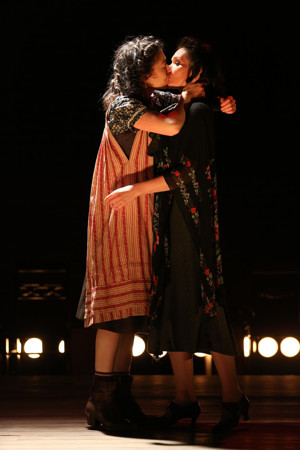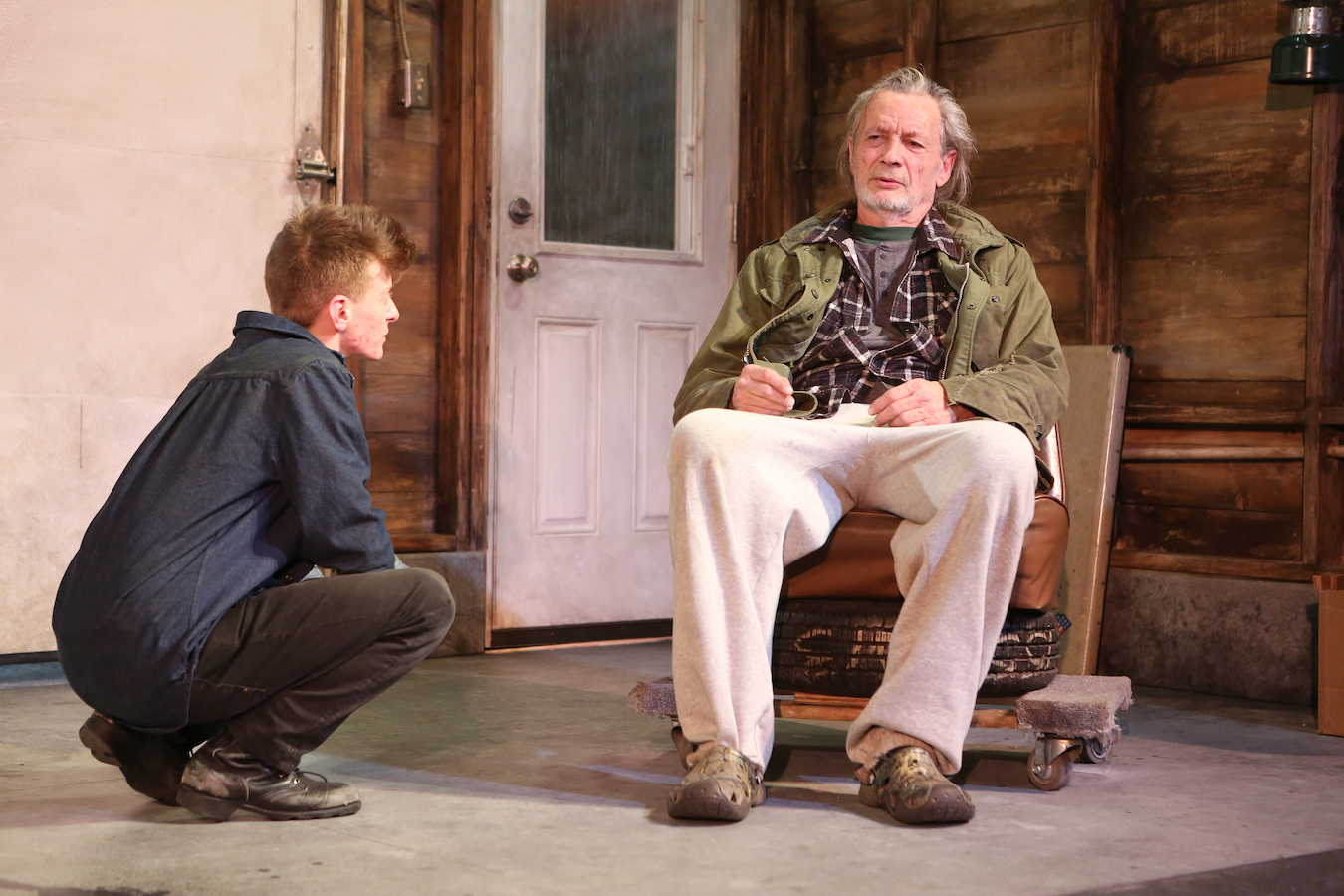By Myra Chanin
Indecent, a powerful drama created by Paula Vogel and Rebecca Taichman, written by Vogel and directed by Taichman, is much more than a fascinating play with klezmer accompaniment, woven around an unfortunate historical theatrical event. It’s a cavalcade that tracks the Eastern-European Jewish literati through the enlightenment that led them away from the emotional, intellectual and religious restrictions of shtetl life to the alleged unlimited freedom of America.
The play at the core of the uproar was the 1922 watered down English translation of God of Vengeance which had been written in Yiddish in 1905 by a young Polish Jew — Sholem Asch. Asch who previously had supported himself by writing letters for illiterate Jews, was invited to present his play to the Warsaw literary coterie of I. L. Peretz, the most profound and mystical of the three giants of Yiddish literature, The other two were Mendele Mokher Seforim, the founder of modern Jewish literature and Sholem Aleichem who wrote the Tevya stories. All three focussed on European shtetl life. Sholem Asch had more of a world view.
God of Vengeance, first produced in Yiddish in Europe and then translated into German and successfully performed in Berlin, tells the story of a successful entrepreneur, Yekel, a brothel owner, who lives above the “candy store” with his wife Sarah, who originally worked for him, and their still pure-enough-to-sleep-with-the-$10,000-torah-he’s-commissioned pubescent daughter Rivkele until she falls in love with Manke, one of Yankel’ sexworkers, which infuriates her father enough to make him banish Rivkele to the brothel to toil with Manke — a spiritual and sexual defilement appropriate from someone who, like Asch, was anti religious establishment and no proponent of capitalism either.
In the US, Asch’s play was successfully produced in Yiddish on the Lower East Side, then translated into English and successfully performed at the Provincetown Playhouse, a gay friendly venue. Its Broadway English production resulted in the company being tried and convicted of obscenity. The producers, in an effort to avoid these charges, had eliminated the most tender lesbian love scene from the script but it didn’t help. It may even have made the play more blatantly sexual and the play was forced to close down. Indecent dances around these events with its remarkable script and outstanding music and ends confronting the greatest indecency of the 20th Century — the systematic murder of six million Jews.
When the play opens, the cast of Indecent, who also perform the play within the play, God of Vengeance, dangle like marionettes on hooks at the rear of the stage. The first to come to life is Lemml, the stage manager. He moves across the stage, ashes streaming from the sleeves of his coat, and introduces the actors one by one, explaining that each one will play many roles. Next come the trio of musicians on violin, clarinet and accordion who lead the cast in singing a Yiddish socialist folk song — that we are all brothers, that we sing merry tunes and band together. I’m always stunned by the joy of klezmer music, that a group of people who have suffered as much as the Jews can produce such happy songs. When I looked at the faces of the people near me, I saw how their joy in the music was palpable. The melodies brought back wonderful, loving family memories of more impoverished but emotionally wealthier times.
We travel through time to 1905 to the bedroom of Sholem Asch and his wife Madja as she reads the freshly written love scene between Rivkele and Manka, and recognizes the words Sholem and she spoke to each other when he seduced her — a further clarification that love is something between two people, be they man and woman, woman and woman or man and man.
During the trial, Asch refuses to testify but agrees to write a letter. How does he actually feel? He tells his wife, “There are massacres right now all over Europe, and I’m supposed to care about what I wrote when I was in short pants.” The Jewish establishment is not supportive of the play or him. They prefer writers who depict Jews as heroic.
Indecent is beautifully staged and performed. It’s hard to find the words to describe the complexity of the story, the emotions it evokes and the personal,as well as professional, relationships depicted. Among the most outstanding performances are the love scenes between Katrina Lenk and Adina Verson.
Other cast members include: Mimi Lieber, Max Gordon Moore, Tom Nelis, Steven Rattazzi, Richard Topol
Indecent is a remarkable theater piece — a pleasure to watch and feel. A veritable tour de force!
Vineyard Theatre, 108 East 15 St, NYC – 1 hr. 40 minutes
(212) 353-0303 www.vineyardtheatre.org Extended thru June 19
Photos: Carol Rosegg
























